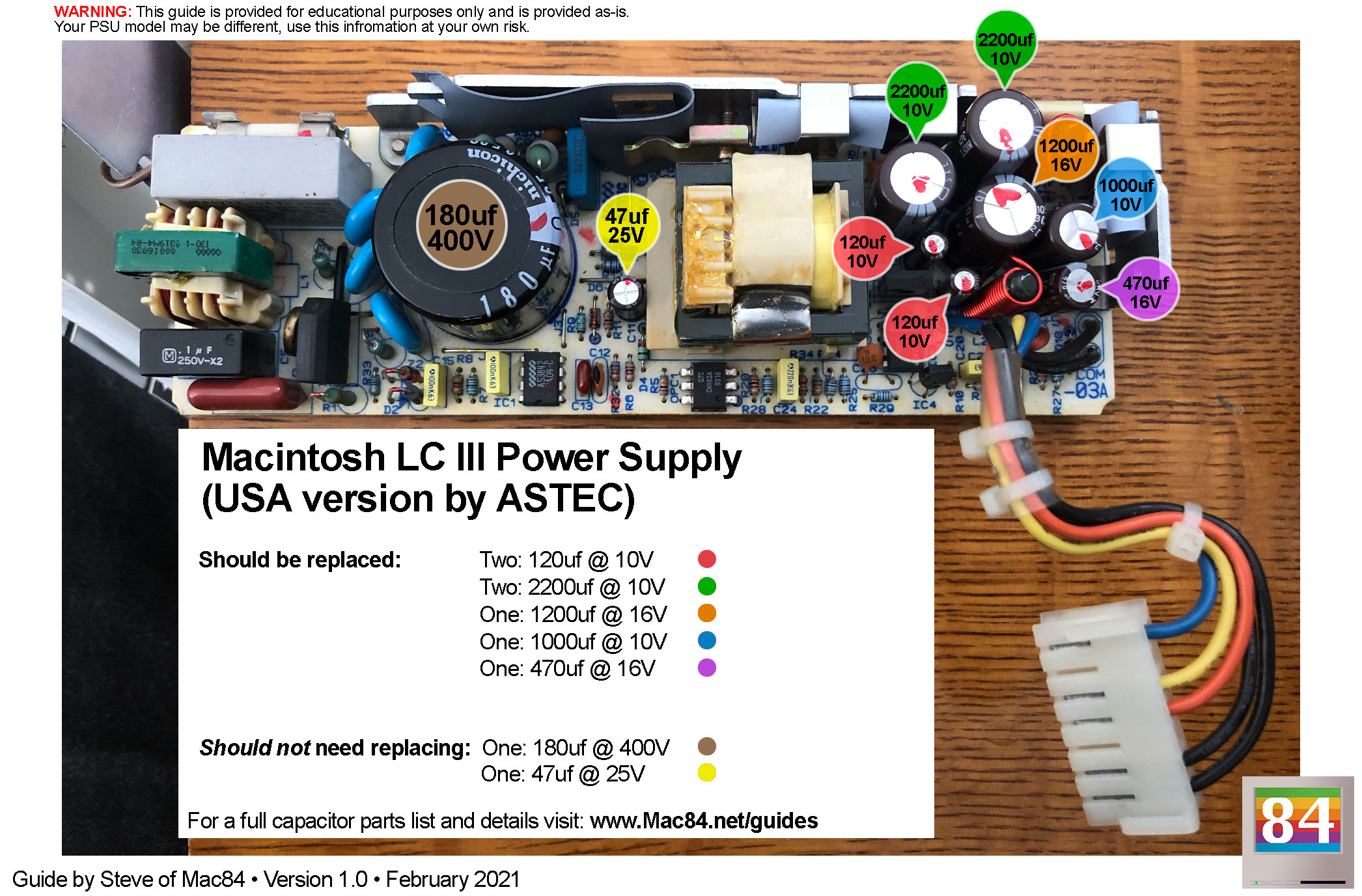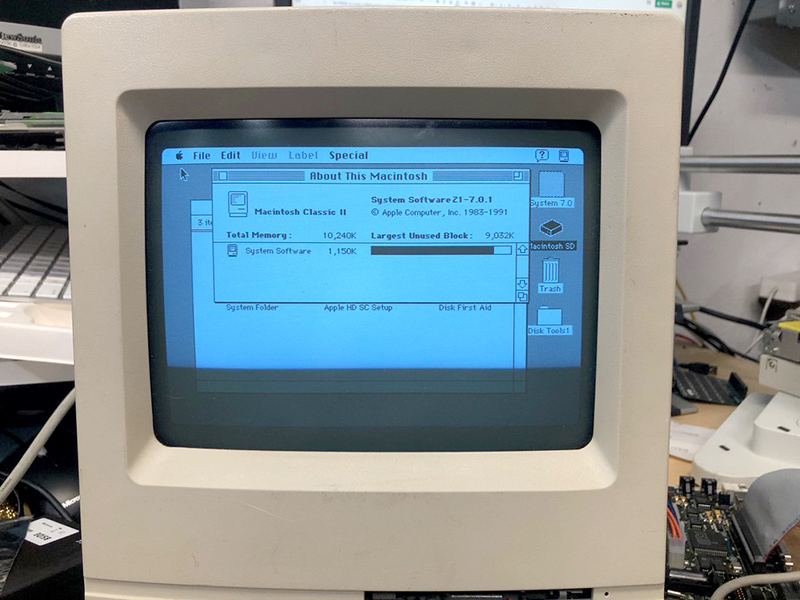Hello Everyone!
First, I want to thank everyone for your continued support. The amount of requests I receive can sometimes be overwhelming, but I appreciate everyone’s patience as I work through my backlog. Your business is greatly appreciated and I’m very glad I play a role in getting a lot of these old Macs up and running again!
I wanted to address a common request I get about power supplies and why I often choose to turn down these requests. Please understand that this decision comes from a great deal of thought on the subject.
In short this boils down to the amount of revisions of these power supplies, the effort and time involved in this process, and the costs and risks involved.
If you want more specific details, feel free to continue reading:
- Multiple revisions of these power supplies exist.

Over the lifespan of these machines the power supplies were made by different manufacturers and were revised frequently. For example, I’ve come across over 3 or more revisions of the power supplies used throughout the Macintosh LC / Performa line of pizza box Macs.
There are also US and International versions of some of these power supplies as well which also have their differences.
These revisions use different capacitors, components, and different board layouts. Not all of these revisions are documented in detail, especially in the specific way I need to order the appropriate replacement capacitors.
It’s not only about the rating (voltage) and value (uf) of the caps, it’s about their physical size too. If the capacitor won’t fit, or is too tall or too wide, it’s not suitable for the repair. - Power Supply Recap Process and Risk
Because of these multiple revisions, it’s difficult to know which capacitors I need to keep in stock.
Before I recap a power supply for my own projects I open them up and inspect every capacitor. I measure the height, width, and if possible pitch of the leads on the capacitor. I create a visual guide to help me with this process. This is time intensive in itself, but it’s only the first step.
I then go on a long journey of browsing Digi-Key and Mouser, etc., to find capacitors that are the right size, value, of good quality, not cost too much, and of course must be in stock. As you can imagine this is another time intensive process.
In some cases a recapping kit for a specific power supply is available from awesome places like Console5.com. However, they also don’t cover all variations of a power supply. Their capacitor part prices are often more affordable than I can offer since they order in bulk.
Furthermore, some capacitors are not easy to source. For example the Macintosh LC power supply contains a very large capacitor. Although they tend to fail less, a suitable replacement can be difficult to source.
I’ve ordered multiple sizes which claim to be a certain height, which all exceed their measurements. This means that if they don’t fit in the PSU it’s back to square one.
As you can imagine, this can be quite the journey and it involves a good deal of risk. If the capacitors don’t fit I’m out of pocket for that cost (plus ~$10 shipping). As you can imagine, this becomes quite frustrating after a while.
Unlike most Macintosh logic boards, the capacitor sizes, values, and other attributes differ wildly throughout these power supplies and their revisions. Because of this I cannot save money by ordering capacitors in bulk.
Pricing also makes this difficult. Although small SMD capacitors are usually 0.40 to 0.60 cents each, these larger capacitors can be upwards of $2 dollars each. As you can imagine, this adds up quickly!
- Time Involved
As you can imagine, this entire process is very, very time intensive. This is on top of my full-time job, hobbies, and other repair work.
If you take this time into consideration… multiply this by the amount of classic Macs and by the amount of revisions to these power supplies, and then double that by the US and International versions of these power supplies and you can understand the logistical headache involved.
Although analog boards for compact Macs are a bit more well documented, they also carry many of the same risks stated above. So at this time I am not openly accepting analog board repairs until I get up to speed. - Future Repairs and Documentation
This does not mean that I will never accept these power supplies for repair. Once I have documented a revision of a Mac power supply I make a freely available guide and put it on my website.
I want these guides to be as newbie proof as possible. I strive to ensure these guides have a list of the specific capacitor parts I ordered, including part numbers and links to shopping carts. This makes it very easy for you to order the right parts and attempt these repairs on your own.
Thank you for considering my services and for respecting my decisions. Please understand that by declining to accept a repair it is not a personal decision against you. It is simply a logistics matter which I cannot take on at this point in time.
-Steven